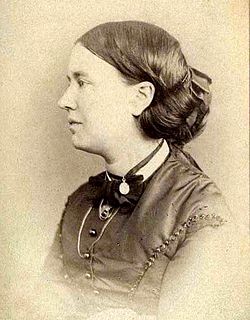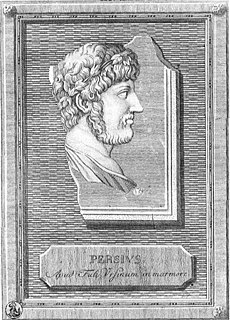A Quote by Benjamin Franklin
Would thou confound thy enemy, be good thyself.
Related Quotes
What is thy thought? There is no miracle?
There is a great one, which thou hast not read,
And never shalt escape. Thyself, O man,
Thou art the miracle. Ay, thou thyself,
Being in the world and of the world, thyself,
Hast breathed in breath from Him that made the world.
Thou art thy Father's copy of Himself,--
Thou art thy Father's miracle.
Beneficence is a duty. He who frequently practices it, and sees his benevolent intentions realized, at length comes really to love him to whom he has done good. When, therefore, it is said, "Thou shalt love thy neighbor as thyself," it is not meant, thou shalt love him first and do him good in consequence of that love, but, thou shalt do good to thy neighbor; and this thy beneficence will engender in thee that love to mankind which is the fulness and consummation of the inclination to do good.
O Romeo, Romeo, wherefore art thou Romeo? Deny thy father refuse thy name, thou art thyself thou not a montegue, what is montegue? tis nor hand nor foot nor any other part belonging to a man What is in a name? That which we call a rose by any other name would smell as sweet, So Romeo would were he not Romeo called retain such dear perfection to which he owes without that title, Romeo, Doth thy name! And for that name which is no part of thee, take all thyself.
When thou art offended at any man's fault, forthwith turn to thyself and reflect in what manner thou doest error thyself. For by attending to this thou wilt quickly forget thy anger, if this consideration is also added, that the man is compelled; for what else could he do? or, if thou art able, take away from him the compulsion.
Let not therefore thy heart be troubled, neither let it fear. Trust in me, and put thy confidence in my mercy. When thou thinkest thyself farthest off from me, oftentimes I am nearest unto thee. When thou countest almost all to be lost, then oftentimes the greatest gain of reward is close at hand. All is not lost, when any thing falleth out contrary. Thou oughtest not to judge according to present feeling; nor so to take any grief, or give thyself over to it.
Our God, who art our winged self, it is thy will in us that willeth.
It is thy desire in us that desireth.
It is thy urge in us that would turn our nights, which are thine, into days which are thine also.
We cannot ask thee for aught, for thou knowest our needs before they are born in us:
Thou art our need; and in giving us more of thyself thou givest us all.
































